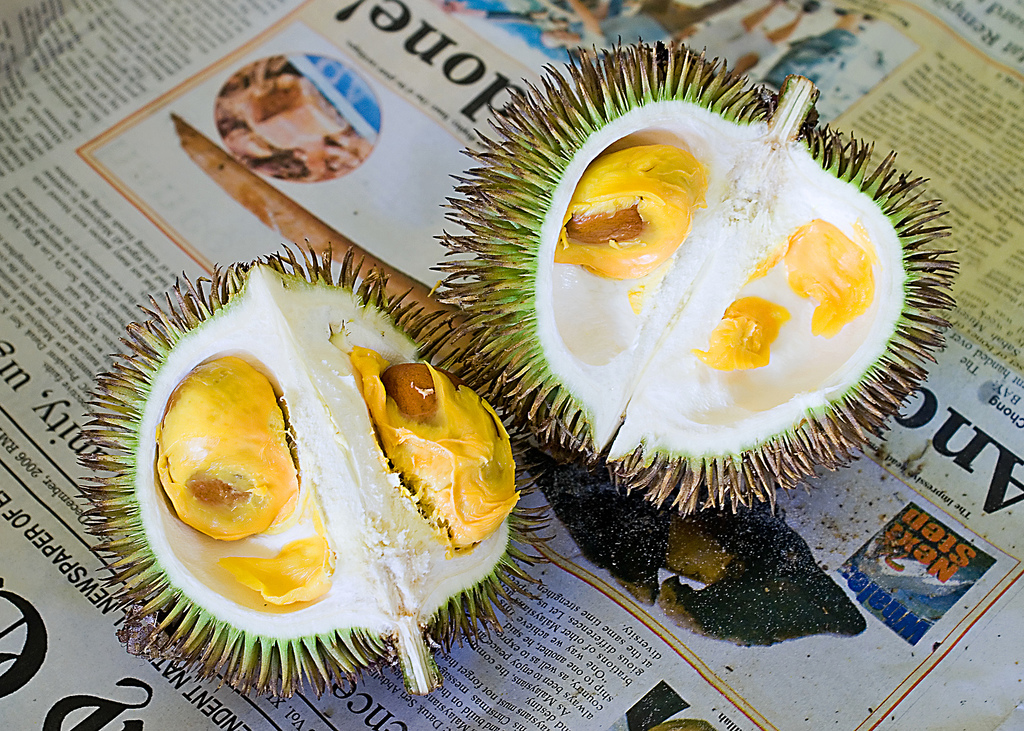English to BM Phrasebook – Part 5: Starting a conversation

If you’ve been following this series and practising what you’ve learnt so far, you are probably ready to tackle having an short conversation in BM. We’ll start off with a list of question words that you will need to know as well as some simple conversational phrases.
You’ll also need to familiarise yourself with honorifics in BM, including how to address yourself and others depending on who you’re speaking to, which can be challenging in BM. So, we’ll tackle that in Part 6. For now, let’s start with question words.
Question words
| English | Bahasa Malaysia |
|---|---|
| Who | Siapakah |
| What | Apakah |
| When | Bilakah |
| Where (general) | Di manakah |
| Where (coming from) | Dari mana |
| How | Bagaimanakah |
| How many | Berapakah |
| Do..? | Adakah |
| Why | Mengapakah |
Most of these question words have a suffix ‘-kah’ attached to it, which is the formal and most accurate way to use these words – it’s basically adding ‘is’ after the word. For example, ‘siapa’ = who, while ‘siapakah’ = who is. You can also use the word without the suffix like most Malaysians but you’d essential be saying ‘who that?’ instead of ‘who is that?’, which is grammatically incorrect but again, it’s what many Malaysians do.
I’d suggest sticking to the formal version for now. Once you get the hang of the language, then you can start dropping suffixes and using lah like a pro.
Example:
You can use most of these words like you would their English counterparts.
- What is your name? = Apakah nama awak?
- When did you arrive? = Bilakah awak sampai?
- What is that? = Apakah itu?
Conversational phrases
| English | Bahasa Malaysia |
|---|---|
| How are you? | Apa khabar? |
| I'm fine | Khabar baik |
| Nice to meet you | Selamat berkenalan |
| My name is… | Nama saya… |
| You can call me… | Awak boleh panggil saya... |
| What is your name? | Apa nama awak? |
| I come from… | Saya dari… |
| Where are you from? | Awak dari mana? |
| I am ...years old | Saya berumur...tahun |
| How old are you? | Berapakah umur awak? |
| Are you Malaysian? | Awak orang Malaysia? |
| I'm in Malaysia for work / holiday | Saya berada di Malaysia untuk cuti / kerja |
| I'm here on holiday | Saya di sini untuk bercuti |
| I am working here | Saya bekerja di sini |
| I have been in Malaysia for … days / months / years | Saya sudah berada di Malaysia selama…hari / bulan / tahun |
| I've been in Malaysia since... | Saya sudah berada di Malaysia sejak… |
| How long will you be in Malaysia? | Awak akan berada di Malaysia berapa lama? |
| I like to eat... | Saya suka makan... |
| What do you like to eat? | Awak suka makan apa? |
| Pardon me? | Maaf? |
| Do you speak...? | Adakah anda fasih bahasa...? |
| I don't understand | Saya tak faham |
| I'm sorry | Maafkan saya |
| Please | Tolong |
| Thank you | Terima kasih |
| You're welcome | Sama-sama |
Note on the phrase ‘How are you?’: The word apa (what) is used here because the phrase directly translates to ‘what news’, instead of being a direct translation from English. A direct translation of ‘How are you?’ would be ‘Bagaimanakah awak?’, which is not entirely inaccurate but is quite unusual.
Example conversations
Here are two examples to help you put these phrases in context.
Example A
A: Hi, my name is Susan. What’s your name?
A: Hi, nama saya Susan. Apakah nama awak?
B: Hi, Susan, nice to meet you. My name is Ali. Are you Malaysian?
B: Hi Susan, selamat berkenalan. Nama saya Ali. Awak orang Malaysia?
A: Yes, I am. Where are you from, Ali?
A: Ya. Awak dari mana, Ali?
B: I’m from America. I’m here on holiday.
B: Saya dari Amerika. Saya di sini untuk bercuti.
A: How long will you be in Malaysia?
A: Berapa lamakah awak akan berada di Malaysia?
B: About one week.
B: Lebih kurang satu minggu.
Notes:
- lebih kurang = more or less
- There are alternate ways you can phrase the same questions. For example:
- How long will you be in Malaysia can also be ‘Awak akan berada di Malaysia berapa lama?’
- I’m here on holiday can also be ‘saya bercuti di sini’ (direct translation: I’m holidaying here)

Example B
A: Did you try Malaysian food?
A: Adakah awak cuba makanan Malaysia?
B: Yes. I like nasi lemak! What do you like to eat?
B: Ya, saya suka nasi lemak! Awak suka makan apa?
A: I like to eat durian.
A: Saya suka makan durian.
B: Pardon me?
B: Maaf?
A: Durian, the fruit! You’ve not tried it?
A: Buah durian! Awak tidak pernah cuba?
B: No, I haven’t.
B: Tidak pernah.
Notes:
- Pernah = have (experience, not possession)
- Buah = fruit
- BM words don’t have past or present tenses, so the word ‘adakah’ works for questions beginning with ‘did’ or ‘do’.
If you need any clarification, leave a comment down below and we’ll try out best to help you unravel the mysteries of BM. Check out the entire series of English to BM Phrasebooks here.
Follow us on Facebook or register for our weekly e-newsletter to keep updated.
"ExpatGo welcomes and encourages comments, input, and divergent opinions. However, we kindly request that you use suitable language in your comments, and refrain from any sort of personal attack, hate speech, or disparaging rhetoric. Comments not in line with this are subject to removal from the site. "



















